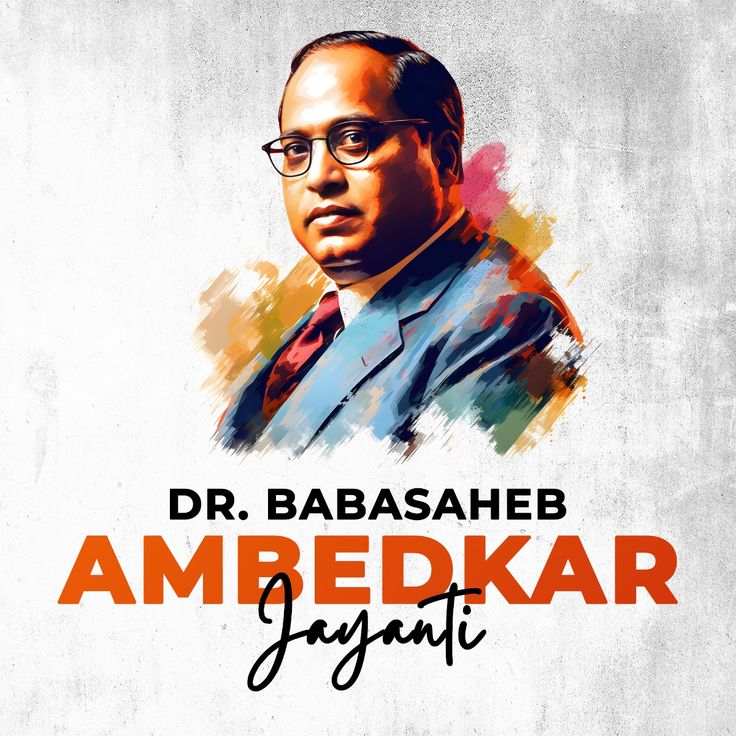🌟 10 Powerful Reasons Why Ambedkar Jayanti Ignites a Nation’s Conscience
📖 Introduction: A Day of Empowerment and Equality
Every year on April 14, India celebrates Ambedkar Jayanti, marking the birth anniversary of Dr. B.R. Ambedkar—a reformer, legal luminary, economist, philosopher, and the chief architect of the Indian Constitution.
- 📖 Introduction: A Day of Empowerment and Equality
- 🗓️ History of Ambedkar Jayanti
- 🔢 Timeline of Major Events
- 📊 Important Facts About Ambedkar Jayanti
- 💬 FAQs About Ambedkar Jayanti
- Q1. Why is Ambedkar Jayanti celebrated?
- Q2. Is it a public holiday?
- Q3. What was his main contribution?
- Q4. Where is it most prominently celebrated?
- Q5. What religion did he adopt?
- 🪙 Significance of Ambedkar Jayanti
- 💥 1. Symbol of Social Justice
- 💥 2. Celebration of Education and Reform
- 💥 3. Political and Cultural Awakening
- 💥 4. Global Recognition of Indian Ideals
- 🎉 How Ambedkar Jayanti Is Celebrated
- 🙌 Wishing Messages for Ambedkar Jayanti
- 🔑 Important Points to Remember
- 🧭 Daily Life Impact of Dr. Ambedkar’s Vision
- 🏛️ Importance in Society
- 🔚 Conclusion: Ambedkar Jayanti—A Flame for Justice That Never Fades
But Ambedkar Jayanti is more than a birthday observance. It’s a reminder of justice, a celebration of equality, and an awakening of social conscience.
His fight for the rights of the marginalized, his advocacy for women and labor, and his unwavering stand against caste discrimination have made him an icon of social revolution not just in India, but worldwide.
🗓️ History of Ambedkar Jayanti
📆 Birth of a Legend
Date of Birth: April 14, 1891
Place: Mhow, Madhya Pradesh (then in Central Provinces)
Dr. Bhimrao Ramji Ambedkar was born into a Dalit Mahar family and faced intense caste-based discrimination from childhood. Yet, he rose to become one of the most influential voices for the downtrodden.
📜 When Did Ambedkar Jayanti Begin?
First celebrated publicly in 1928 in Pune, by Janardan Sadashiv Ranapisay, a follower of Ambedkar.
It was declared a public holiday in India in 1990, when Ambedkar was posthumously awarded the Bharat Ratna.
🔢 Timeline of Major Events
| Year | Event |
|---|---|
| 1891 | Birth of Dr. Ambedkar |
| 1923 | Founded Bahishkrit Hitakarini Sabha |
| 1936 | Wrote Annihilation of Caste |
| 1947 | Became India’s First Law Minister |
| 1949 | Drafted the Constitution of India |
| 1956 | Embraced Buddhism with millions |
| 1990 | Awarded Bharat Ratna posthumously |
| Present | April 14 celebrated across India & globally |
📊 Important Facts About Ambedkar Jayanti
🌏 Celebrated in India, Canada, UK, Japan, and the USA.
🏛️ The largest gathering happens at Chaitya Bhoomi in Mumbai.
🧠 Dr. Ambedkar had multiple doctorates, including from Columbia University and the London School of Economics.
📘 He authored 22 scholarly books, including The Problem of the Rupee and Thoughts on Linguistic States.
✍️ He was the principal architect of the Indian Constitution.
🙏 He was the first Law Minister of Independent India.
🔄 Over 50 million people have embraced Buddhism inspired by him.
🎓 He was the first Dalit to complete higher education abroad.
💡 His motto: “Educate, Agitate, Organize”.
🏆 His birthday is a gazetted holiday in many Indian states.
💬 FAQs About Ambedkar Jayanti
Q1. Why is Ambedkar Jayanti celebrated?
To honor the birth and contributions of Dr. B.R. Ambedkar, especially in social justice, constitution-making, and human rights.
Q2. Is it a public holiday?
Yes, April 14 is observed as a public holiday in many Indian states and by the Central Government.
Q3. What was his main contribution?
Drafting the Indian Constitution and championing the rights of the oppressed.
Q4. Where is it most prominently celebrated?
At Chaitya Bhoomi (Mumbai) and Deekshabhoomi (Nagpur).
Q5. What religion did he adopt?
He converted to Buddhism on October 14, 1956, and led a mass movement of Dalit conversion.
🪙 Significance of Ambedkar Jayanti
💥 1. Symbol of Social Justice
Dr. Ambedkar fought casteism, inequality, and untouchability with logic, law, and love. This day reinforces India’s pledge to dignity and equality for all.
💥 2. Celebration of Education and Reform
He was a scholar and visionary. Ambedkar Jayanti inspires students, thinkers, and reformers to pursue knowledge and use it for social change.
💥 3. Political and Cultural Awakening
It’s not merely a symbolic day—it fuels policy discussions, Dalit empowerment movements, and grassroots-level social change.
💥 4. Global Recognition of Indian Ideals
In many parts of the world, Ambedkar is studied as a human rights leader, and his birthday is observed to highlight global issues of inequality.
🎉 How Ambedkar Jayanti Is Celebrated
Marches & Rallies: Especially in Maharashtra and Uttar Pradesh
Statue Decorations: Across colleges, public offices, and Dalit colonies
Public Discourses: On Constitution, reservation, education rights
Tribute at Chaitya Bhoomi: Mumbai sees lakhs of visitors
Readings from Ambedkar’s Works: Particularly Annihilation of Caste
Buddhist Chanting and Cultural Programs
Online campaigns and webinars by universities and civil groups
🙌 Wishing Messages for Ambedkar Jayanti
🌹 “Let us honor the father of Indian Constitution and voice of the voiceless—Dr. Ambedkar!”
📘 “May his ideals of liberty, equality, and fraternity guide our path always.”
🪔 “Happy Ambedkar Jayanti! Let’s commit to justice and dignity for all.”
🧠 “Salute to the man who turned pain into power, oppression into opportunity.”
✊ “Ambedkar Jayanti is not just a date, it’s a movement!”
🔑 Important Points to Remember
| Aspect | Details |
|---|---|
| 📅 Date | April 14 |
| 📍 Major Locations | Mhow, Mumbai, Nagpur |
| 🧠 Focus | Equality, Education, Constitution |
| 🏛️ First Law Minister | Yes |
| 🕯️ Died | December 6, 1956 (Mahaparinirvan) |
| 🧘 Embraced Buddhism | 1956, along with 5 lakh followers |
🧭 Daily Life Impact of Dr. Ambedkar’s Vision
Dr. Ambedkar’s contributions affect your life in ways you may not even realize:
✅ Your Fundamental Rights in the Constitution
✅ Reservation policies for SC/ST/OBC
✅ Equal job and education opportunities for marginalized groups
✅ Legal framework for labor, women, and minorities
✅ Promotion of democratic values in school textbooks and debates
✅ Social welfare acts and constitutional safeguards
🏛️ Importance in Society
Dr. Ambedkar transformed India’s social fabric. His work:
Liberated millions from caste oppression
Built a secular, inclusive constitution
Established safeguards for weaker sections
Promoted women’s rights in family laws
Became a role model for self-discipline, education, and courage
He is one of the few global figures who rose from marginalized roots to reshape a nation’s ideology.
🔚 Conclusion: Ambedkar Jayanti—A Flame for Justice That Never Fades
Dr. B.R. Ambedkar was not just a leader; he was a torchbearer for generations yearning for dignity. In a deeply unequal society, he proved that one pen can be mightier than centuries of injustice.
Ambedkar Jayanti is not merely about remembering a historical figure—it’s about reigniting a movement. It urges each of us to challenge discrimination, uphold constitutional values, and build a society rooted in justice, liberty, and fraternity.









Hello there, I found your site via Google while looking for a related topic, your web site came up, it looks great. I have bookmarked it in my google bookmarks.